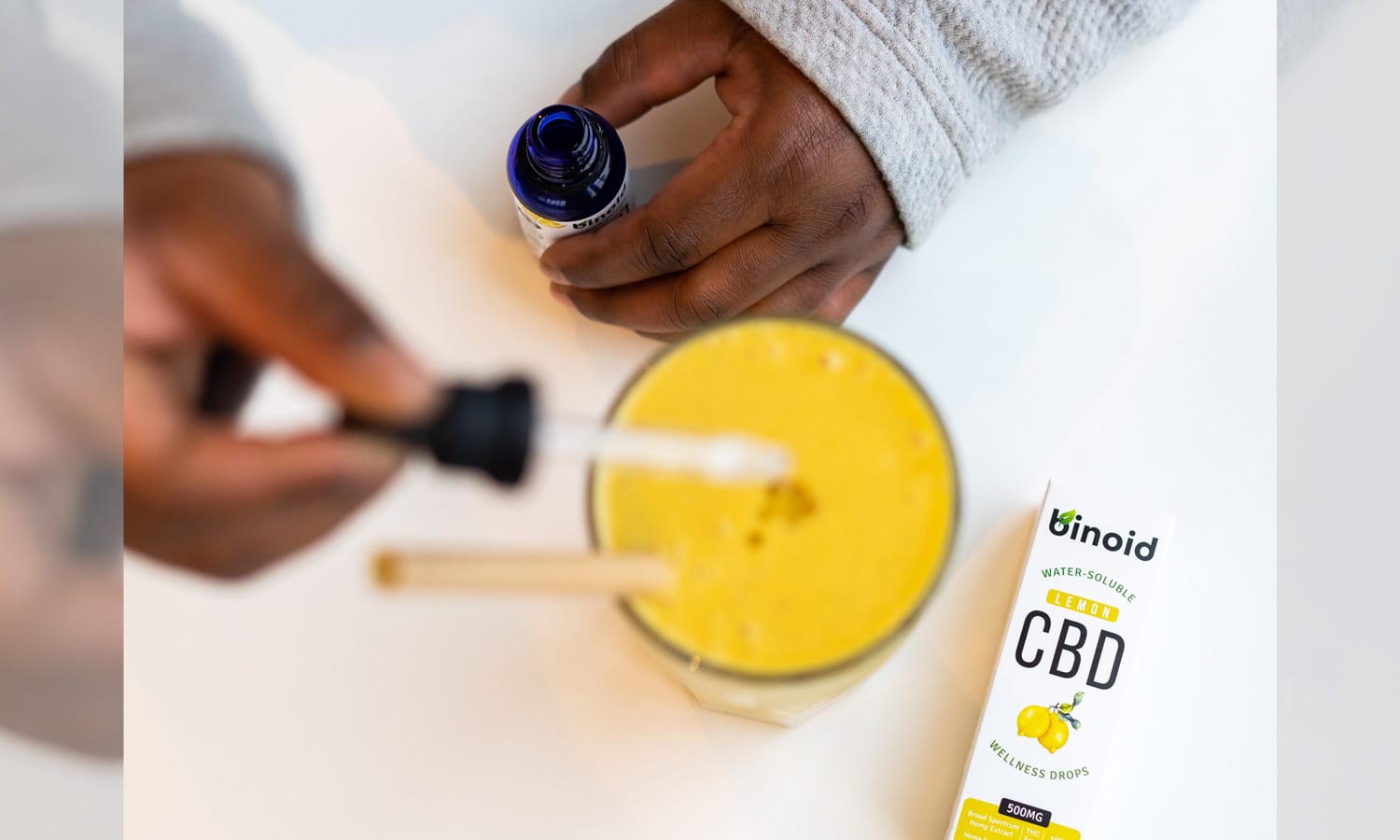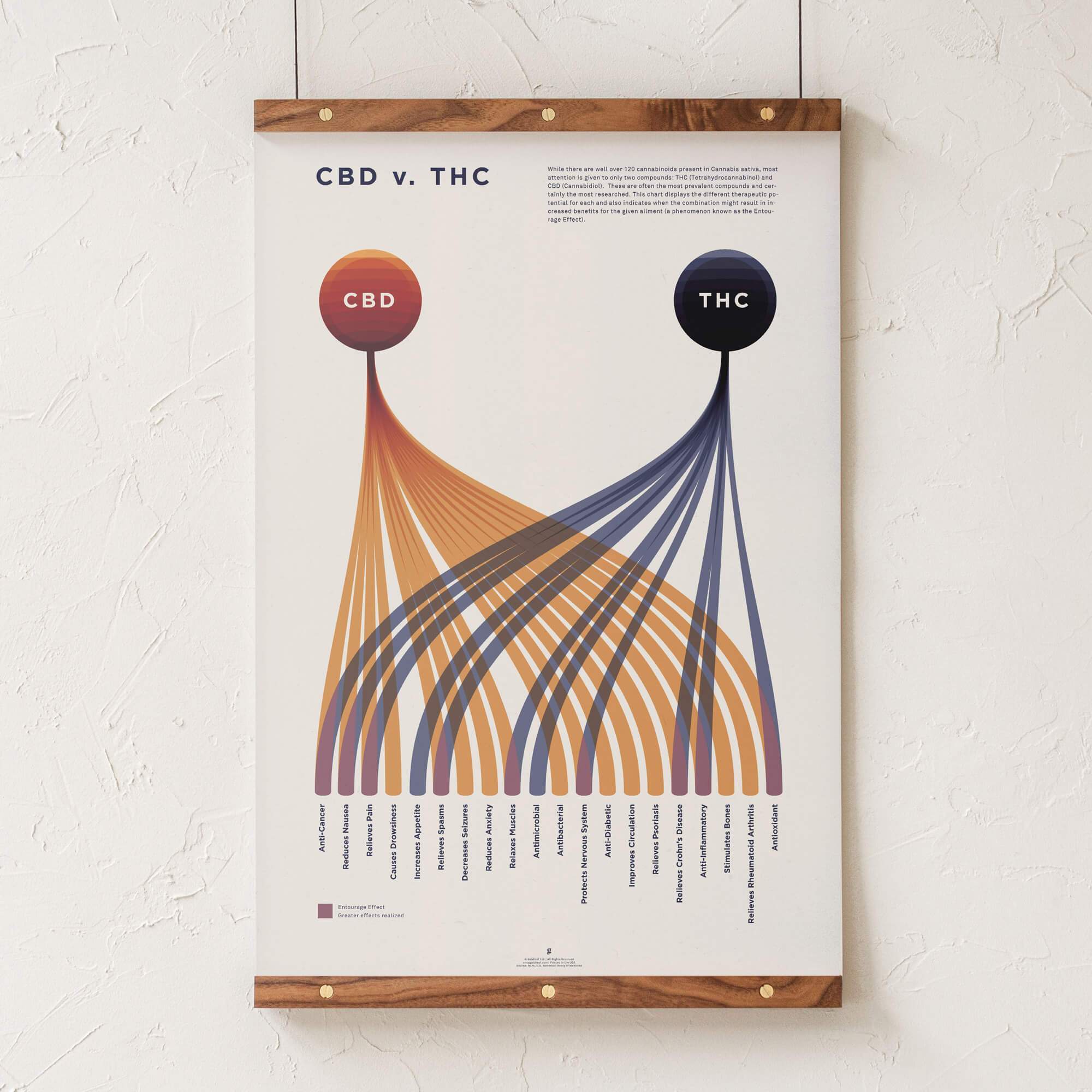Do I Really Need Both CBD And THC?

Like THC, CBD has many therapeutic properties which aid in the treatment of numerous conditions. But here’s how the two compounds differ.
CBD, THC, CBG, CBN, CBDa, CBDv, THCa, THCv, etc.. It’s easy to become confused by the veritable alphabet soup of cannabinoids.
All you need to know is that CBD is the cannabinoid that heals and THC is the cannabinoid that gets you high, right?
Well, kind of, but that’s only a starting point.
The Basics
While THC is perhaps most known for its psychoactive properties (i.e. it gets you high), it also offers numerous health benefits.
THC is effective at relieving pain, reducing nausea and vomiting, suppressing muscle spasms, slowing the deterioration of your nervous system, reducing eye pressure, and acting as an antidepressant. These are only a few of the symptoms THC is effective in treating.
Like THC, CBD has many therapeutic properties which aid in the treatment of numerous conditions.
CBD is effective at inhibiting cancer cell growth, reducing blood sugar, relieving anxiety, slowing bacterial growth, and reducing inflammation. These are only a few of the many conditions for which CBD has been proven effective.
The Entourage Effect
There are several medical conditions that can be treated with both CBD and THC. These include chronic pain, depression, muscle spasms, and nausea.
While you can choose to treat any of these conditions with only THC or CBD, the entourage effect occurs when they’re coupled together.
The entourage effect is when multiple cannabinoids or terpenes work together to enhance the therapeutic effects of each cannabinoid. This applies not only to CBD and THC, but also to all 120 known cannabinoids.
Key Point: CBD and THC compound their therapeutic effects when taken in combination. You can see this concept illustrated in the following infographic where purple showcases the enhanced ‘entourage’ effect.
Reasons To Avoid THC
Of course, though THC has far more to offer than just a high, it is not for everybody. There are several reasons why you may choose to utilize a CBD-only treatment. These include:
- You don’t enjoy the feeling of being ‘high.’ The psychoactive properties of THC can be powerful, especially when taken in large doses. Some people are averse to the perceived loss of control or just don’t like the sensation.
- You have to focus on your work. Some people have the ability to perform at or above standard while high; however, most of us fall short. If you have a condition that’s treated by both CBD and THC, you may wish to opt for a CBD-only preparation during your workday.
- You have to take drug tests. When applying for work, many jobs require drug tests. Additionally, some lines of employment frequently drug test employees because of the physically rigorous and/or protective nature of the position. Individuals with a history on the wrong side of the law may also face court-appointed drug testing while on parole. Many drug tests only screen for THC, although it’s a good idea to avoid all cannabinoids if you may potentially need to take a drug test. Even CBD preparations might have trace (or larger) amounts of THC or other cannabinoids like CBN that can make you fail a drug test.
- Your condition is only treated by CBD. Of the most studied cannabinoids, including THC, there are a few medical symptoms in which CBD is the only cannabinoid to have medical efficacy. If intestinal contractions are your sole medical concern, for example, your body may not require any other cannabinoids besides CBD.
Key Point: Although there are several valid reasons why THC may not be a good choice for all cannabis patients and enthusiasts, it is perfectly acceptable for most.
A Caveat About CBD
With the increasing popularity and availability of CBD products throughout the United States, it should be noted that not all products work as advertised. Lack of regulation is a significant problem, one which Peter Pitts, president of the Center for Medicine in the Public Interest and a former FDA associate commissioner, described as “a maelstrom of false claims and shoddy quality standards.”
Although many CBD products are effective, some unscrupulous business owners have seized on the rising tide and brought poor quality products to market. We recommend that if you choose to obtain a CBD product that you make sure to do your homework prior to purchase.
Key Point: Utilizing reputable sources and the advice of trusted budtenders are some of the best ways to ensure you are purchasing a quality CBD product.
Conclusion
When it comes to cannabis, the whole is clearly greater than the sum of its parts.
Despite the fact that CBD and THC have many potent healing properties on their own, the combination of these two (and other) cannabinoids is the ideal course of therapy for many cannabis patients. CBD may have the widest known breadth of conditions treated among the cannabinoids, but THC is certainly no slouch in that regard either.
And, let’s not forget, the psychoactive properties of THC add a recreational overlay to your therapy. Not bad for a side benefit!
420 Intel is Your Source for Marijuana News
420 Intel Canada is your leading news source for the Canadian cannabis industry. Get the latest updates on Canadian cannabis stocks and developments on how Canada continues to be a major player in the worldwide recreational and medical cannabis industry.
420 Intel Canada is the Canadian Industry news outlet that will keep you updated on how these Canadian developments in recreational and medical marijuana will impact the country and the world. Our commitment is to bring you the most important cannabis news stories from across Canada every day of the week.
Marijuana industry news is a constant endeavor with new developments each day. For marijuana news across the True North, 420 Intel Canada promises to bring you quality, Canadian, cannabis industry news.
You can get 420 Intel news delivered directly to your inbox by signing up for our daily marijuana news, ensuring you’re always kept up to date on the ever-changing cannabis industry. To stay even better informed about marijuana legalization news follow us on Twitter, Facebook and LinkedIn.





